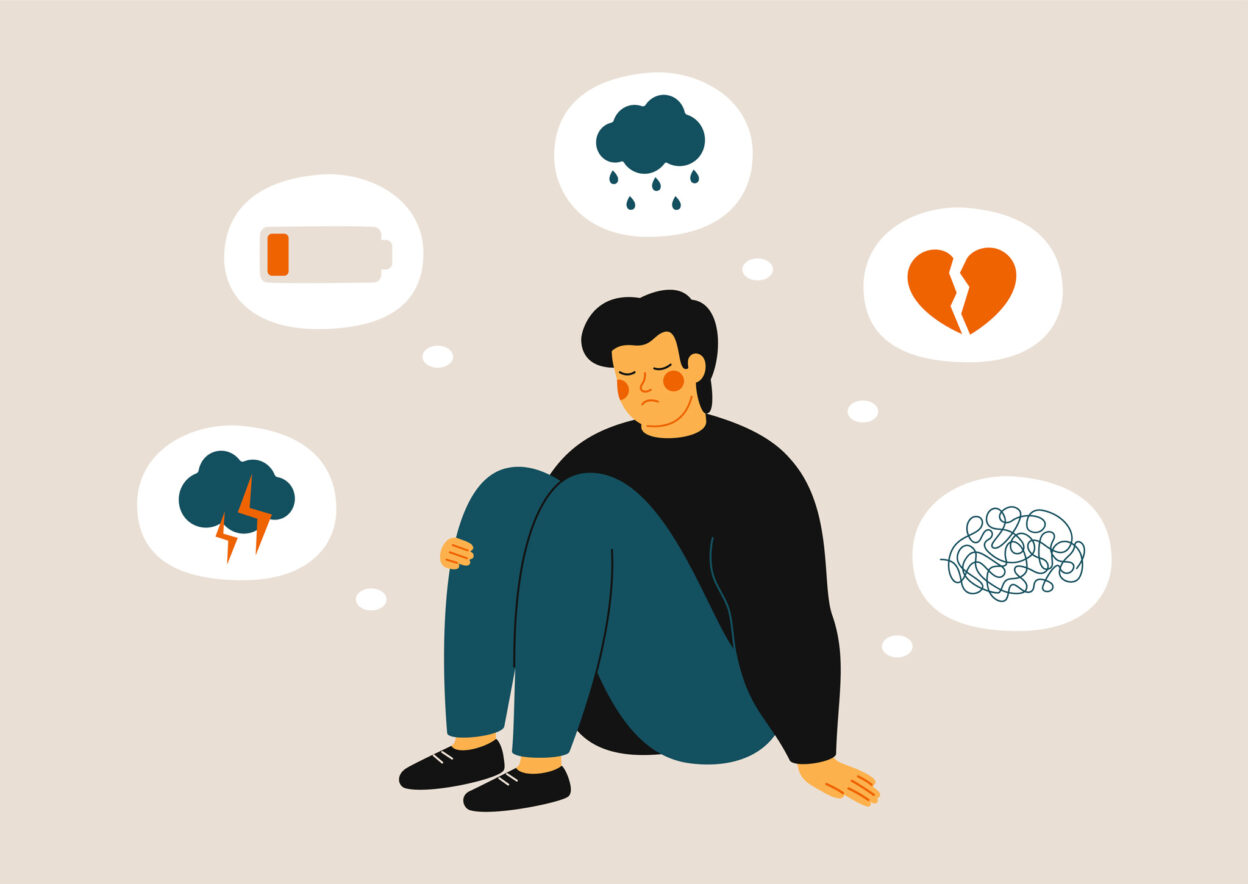What is Depression?
Depression is a common mood disorder that affects how you feel, behave, and think.
It can cause a wide range of physical and emotional symptoms and negatively impact your ability to work, study, and live your daily life.
Common Symptoms of Depression:
- Persistent sadness: A deep feeling of sorrow or misery.
- Loss of interest or pleasure: No longer enjoying activities you once loved.
- Changes in appetite or weight: Unexplained increase or decrease in appetite or weight.
- Sleep problems: Insomnia or excessive sleeping.
- Fatigue or low energy: Feeling tired or drained.
- Feelings of worthlessness or guilt: Negative thoughts about yourself or feeling guilty without a clear reason.
- Difficulty concentrating or making decisions: Trouble focusing or deciding on everyday matters.
- Thoughts of death or suicide: Thinking about death, suicide, or making plans for it.
Treatment for Depression:
Fortunately, depression is a treatable condition. Treatment depends on the severity of symptoms and your individual needs and may include a combination of the following:
Psychotherapy:
- Cognitive Behavioral Therapy (CBT): Helps change negative thought and behavior patterns contributing to depression.
- Psychodynamic Therapy: Focuses on understanding the emotional roots of depression.
- Interpersonal Therapy: Aims to improve personal relationships and social skills.
Medications:
- Antidepressants: Such as SSRIs (Selective Serotonin Reuptake Inhibitors) and SNRIs (Serotonin-Norepinephrine Reuptake Inhibitors), which help balance brain chemicals affecting mood.
- Tricyclic Antidepressants and MAOIs (Monoamine Oxidase Inhibitors): Used in severe cases or when other medications are ineffective.
Group Therapy:
- Can be helpful by interacting with others who are experiencing the same issues and sharing mutual support and experiences.
Medical Interventions:
- Electroconvulsive Therapy (ECT): Used in severe or treatment-resistant cases.
- Transcranial Magnetic Stimulation (TMS): A non-invasive method to stimulate nerves in the brain.
Lifestyle Changes:
- Exercise: Helps improve mood and reduce symptoms of depression.
- Balanced diet: Nutrition can significantly influence mental health.
- Good sleep: Quality and sufficient sleep have a positive impact on mental well-being.
- Reducing alcohol and drug use: These can worsen symptoms.
Social Support:
- Support from friends and family can be very helpful in the recovery process.
Final Advice:
It’s important for depression to be evaluated and diagnosed by mental health professionals.
Treatment is individual and may take time to find what works best for each person.




